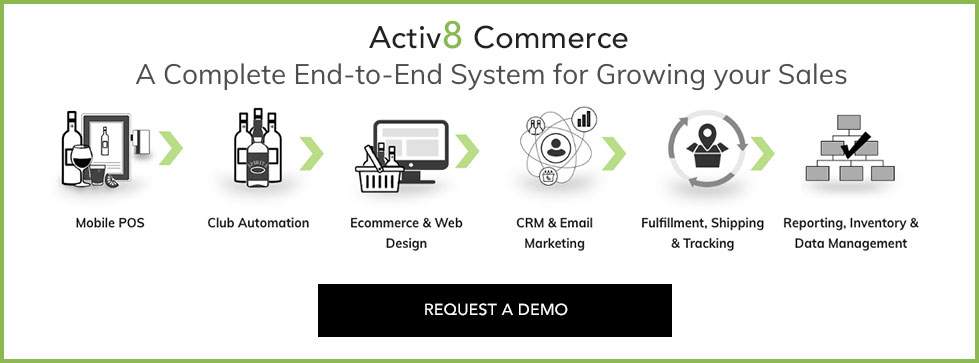
Spirits Producers from 45 States Virtually Scale Capitol Hill During Public Policy Conference
In a year full of pivots, the latest was the transition to a virtual event for the annual American Craft Spirits Association (ACSA) and Distilled Spirits Council of the U.S. (DISCUS) Public Policy Conference, which was held Sept. 15-16. A record number of attendees virtually converged on the nation’s capital to advocate for the industry’s greatest priorities. More than 300 distillers, trading partners and industry allies from 45 states logged in at a time when it’s more critical than ever that the spirits industry’s voices be heard on Capitol Hill.
During nearly 200 virtual meetings with Senators and House members from both sides of the aisle, representing nearly all U.S. states, spirits producers urged support for the Craft Beverage Modernization and Tax Reform Act (CBMTRA) HR 1175 in the House and S.362 in the Senate. Additionally, attendees called for the end of trade tariffs that have been severely impacting U.S. spirits exports and asked legislators to weigh in with their concerns about a flawed proposal under review at the U.S. Department of Agriculture (USDA) and Department of Health and Human Services (HHS) to change the definition of moderate drinking for men in the U.S. Dietary Guidelines (DGA).
Tax Relief
The temporary reduction of the federal excise tax (FET) is set to expire on December 31, 2020, if Congress takes no further action. Initial temporary FET relief became law on January 1, 2018, when the federal tax was reduced from $13.50 to $2.70 per proof gallon on the first 100,000 gallons. The reduction passed as part of the broader Tax Cut and Jobs Act of 2017 and was originally set to expire on December 31, 2019. Following the continuous efforts of ACSA and DISCUS, Congress last December passed a one-year extension on the reduced tax rate, which will expire just three and a half months from now. The spirits industry’s main objective is to make the $2.70-per-gallon rate permanent, by convincing Congress to pass the bi-partisan CBMTRA. Senators Ron Wyden (D-OR) and Roy Blunt (R-MO) introduced the Senate version, S.362, which has the support of 74 Senators at last count. Representatives Ron Kind (D-WI) and Mike Kelly (R-WI) are behind the House version, HR 1175, and have also gained the support of three-quarters of the House.

“Not knowing what the (FET) is going to be [in January] has actually been a problem for almost a year now,” said Becky Harris, president and head distiller of Catoctin Creek Distilling Co. in Purcellville, Virginia, and president of ACSA. “When the extension was put in [in December 2019], we were already worried about what was going to happen next year. For us, this is something really urgent. We’re looking at the possibility of big investments in both our plant capacity and the number of people we’re going to be able to have to help us run that plant.”
Harris noted that the impact of higher excise taxes ripples across other industries, affecting the suppliers that rely on distilleries to survive.
“Local agriculture and local suppliers are all affected when we don’t have confidence in what our business climate is going to be,” Harris said.
The 400% excise tax increase that could happen on January 1 if Congress fails to act would make it difficult for many to remain in business, especially during a pandemic.
“Some of the larger brands use up that tax incentive in half a day,” said ACSA CEO Margie Lehrman. “Most craft distillers don’t use up that tax incentive in a year.”
Dietary Guidelines for Americans
The newest issue the spirits industry is discussing with U.S. Senators and Representatives is a proposal to change the longstanding definition of moderate drinking contained in the U.S. Dietary Guidelines for Americans.
Since USDA and HHS issued the first DGA in 1980, the federal government has advised adults who choose to consume alcohol to do so in moderation. Since 1990, the government has defined moderation as no more than one serving per day of spirits, beer or wine for women and no more than two servings per day for men. The federal agencies update the DGA every five years and after an 18-month review process will be doing so at the end of 2020—with a proposed change that would cut the recommended limit for men in half, putting it on par with one-drink-per-day recommendation for women.
“What we’re very concerned about as an industry, is that [the proposed change] does not appear to be based on any new science,” Harris noted. “It has been just kind of slid through.”
Harris and her colleagues called upon legislators to investigate.
“The rule is that there’s supposed to be a preponderance of evidence to trigger those changes,” Harris added, and right now there does not appear to be that.”
Making Progress
Many craft spirits producers expressed optimism after their meetings with federal legislators.
“It was great to speak with [Indiana] Sen. [Mike] Braun and share with him how important it is to support the Craft Beverage Modernization and Tax Reform Act,” said Jeff Wuslich, co-founder of Cardinal Spirits in Bloomington, Indiana. “As a businessman, he quickly grasped just how important this legislation is to our industry. It was nice to Zoom with him while still being able to do a distillation run!”
Molly Troupe, master distiller at Freeland Spirits in Portland, Oregon—a constituent of CMBTRA sponsor Sen. Wyden—was grateful for the opportunity to be heard from the opposite coast.
“2020 has brought a year full of uncertainties,” Troupe said. “In an industry like ours, where plans and budgets are sometimes put together years in advance, a tax increase is detrimental. Oregon distilleries are dealing with COVID, and now forest fires, and need to know that this act will be passed, preventing a 400% increase in our federal excise tax. We are so thankful for the Senators and Representatives who took time from their days to hear about the good distilleries have done in their community and the problems our industry is facing. With the Craft Modernization Act’s broad support in the House and Senate, we are hopeful that this act will be extended or made permanent before the end of 2020.”
Gina Holman, founding partner of J. Carter Distillery in Waconia, Minnesota, shared similar sentiments.
“I’m grateful for all that our industry was able to accomplish during the last two days of the Public Policy Conference,” Holman said. “Thank you DISCUS and ACSA, the presenters, and elected officials for setting up a clear agenda in advance which allowed us to learn more and discuss the many challenges facing micro-distilleries across the country. The ‘fly-in’ allowed our local distilleries to connect with our Senators and their staff. We thanked them for their support, and it allowed us to share our stories, explain how the FET reduction has impacted our business strategies, and the impact our businesses have on many other industries and our local community.”
Ryan Friesen, head distiller at Blinking Owl Distillery in Santa Ana, California, expressed pride in ACSA’s and DISCUS’s joint effort to work toward a shared goal.
“Pound for pound [the virtual format] might actually be a better way to engage our legislators,” Friesen said. “What we accomplished in two to four hours might have taken two days and an expensive fly-in to D.C.”
Not only did the Public Policy Conference enable spirits producers to meet legislators face to face from great distances through the wonders of technology, the event also provided some face time with the regulatory side of the federal government during Tuesday’s panel with leadership at the U.S. Alcohol and Tobacco Tax & Trade Bureau (TTB). Administrator Mary Ryan emphasized TTB’s desire to maintain a positive working relationship with the industry. “Our goal is to have a regulatory footprint that’s as narrowly tailored as it can be and as intuitive as we can make it,” Ryan said. “I don’t think the alcohol industry objects to being regulated, but the regulatory structure needs to keep pace with, and allow you to adjust to, the environment and realities you are facing. … We’re looking to reduce the burdens on the industry, make compliance easier, and hasten our service as we enforce our mission.”
The 2020 Public Policy Conference kicked off on Tuesday with opening remarks from Lehrman and DISCUS president and CEO Chris Swonger, who emphasized the importance of spirits producers telling their stories in their efforts to get Congress to act on the issues that are most important to the industry.
“As we’ve said in the past, your stories, the challenges that you all have had to navigate through the pandemic are going to be essential elements…to get all members of Congress to push through the great political divide that exists in our country and push really hard to get this passed before year’s end,” Swonger said. “Your stories, your efforts and advocacy are going to be very important for all of us.”
Lehrman noted that collective efforts have enabled people to overcome seemingly insurmountable obstacles throughout human history. “Think about how [the Pyramids of Egypt] were built,” Lehrman said. “In short, there were massive numbers of men—20,000—who used limited technology to complete a task, a grand task.”
Then, she points to a modern-day scenario found in the writing of management guru Jim Collins, author of “Good to Great.”
“There’s no single defining action, no grand program, no single killer innovation, no solitary lucky break, no miracle moment,” Lehrman continued. “Rather, it feels like turning a giant, heavy flywheel. Pushing with great effort, you get the flywheel to inch forward…Then at some point, breakthrough! The flywheel flies forward with unstoppable momentum. The common factor between the Pyramids and moving the flywheel is you. Stones moved, business develops and Congress will act through combined, concentrated efforts.”
The first day of the conference also included an appearance from U.S. Senators.
Wyden, who addressed Public Policy Conference attendees via Zoom, touted the bi-partisan nature of the bill, especially at a time of intense partisan polarization. “I think if you were going to order a 7Up on the floor of the Senate, you couldn’t get that many Senators to go along with it,” Wyden joked.

Wyden noted that FET relief permanence has always been his objective and that he won’t stop pushing for it until that goal is achieved. “I want everyone in this group to know how much I appreciate the working relationship we’ve had with all of you and I want you to know that we’re going to go the distance until we achieve what we set out to do years ago…The permanent legislation we’re talking about today is more important during the COVID pandemic [and] during the monstrous forest fires that we’ve seen in my part of the country that have taken such a toll on the West…Today’s discussion is not an ended discussion, it’s a to-be-continued discussion until there is a bill signed into law that makes it permanent and you have the certainty and predictability you need to grow your business.”
Senator Blunt offered his own remarks to the online audience via a pre-recorded video. Blunt hailed the efforts of craft spirits producers that stepped up this year to produce hand sanitizer when their communities so desperately needed it—even as distilleries themselves were severely impacted by the pandemic. “But the distilleries pivoted to step up to the plate,” Blunt said. “You answered the call to help when it was needed, even when you faced your own crises of closures of tasting rooms, bars and restaurants…As we navigate the economic crisis brought on by the pandemic, you shouldn’t have to worry if those decreases turn to significant increases in your excise tax in January of next year. Your ability to grow and compete shouldn’t be hindered by burdensome taxes.”
ACSA Public Policy Adviser Jim Hyland noted that the industry should get Congress to act on FET reform sooner rather than later. “This is an incredibly well-timed virtual fly-in for us because some of these [sorts of] decisions are being made right now,” Hyland said. “We would love to get it done now so we’re not sitting on pins and needles in December, wondering whether it will be extended…It’s a great time to say ‘now’s the time, let’s get this done.’”
The conference concluded with a toast, led by ACSA and DISCUS, as well as a panel of distinguished guests that included Deborah Brenner, founder and CEO of Women of the Vine & Spirits; industry expert Peggy Noe Stevens, author of “Which Fork Do I Use with My Bourbon,” and Bill Thomas, owner of the Jack Rose Dining Saloon in Washington, D.C.
“Yesterday when we were briefing you, we talked about expectations for today and I think, for the most part, you’d agree that it worked and it worked well,” ACSA’s Lehrman told attendees at the evening virtual gathering. “I think we pushed the ball forward and I think we moved it.”
DISCUS president and CEO Chris Swonger also expressed his gratitude toward all who participated in the two-day event.
“A united industry is a powerful industry on these issues,” Swonger said. “We’ve got a lot of work to do between now and the end of the year, but today and yesterday was a big success.”
To keep the momentum of the past two days going, please continue to contact your Senators and Representatives and urge them to support permanent FET relief and an end to trade tariffs. Additionally, demand that they they work to prevent the proposed change to the definition of moderation in the Dietary Guidelines for Americans.
For the Senate: (202) 224-3121 • www.senate.gov
For the House of Representatives: (202)-225-3121 • www.house.gov
ACSA and DISCUS would like to extend a special thanks to ByQuest, Five x 5 Solutions, Glencairn Crystal and the Wine and Spirits Shippers Association for sponsoring the Public Policy Conference.
This article provided by Craft Spirits at craftspiritsmag.com
- Posted by support
- On September 23, 2020
- 0 Comment



